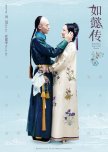
This Show Perfectly Encapsulates Narcissism
There has never been a drama that so accurately depicts what happens when someone who has a very clear case of clinical narcissism is given such a degree of power. Narcissists are known for constantly gaslighting others, projecting their negative traits onto others, belittling and demeaning people to make them vulnerable for the narcissist's "empowerment", having a bunch of "mini-me's" to support your massive ego and assist in the gaslighting/projecting, delusions of grandeur / god complex, never being able to admit the capability of making a mistake, perpetual obscene emotional/physical trauma, always ready to play sick games with people for amusement, an amazing commitment to ferocious and barbarous anger/temper, and much more. Narcissists also view relationships to be a position of "ownership". They do not view relationships, especially romantic ones, to be a commitment towards one another. No, narcissists believe relationships exist for the sole purpose of the narcissist to "own" that person. Narcissists are practically lost, troubled, pathetic souls who are stuck in a small emotional cage; they completely lack any empathy whatsoever (some of them don't even understand what empathy even means). Narcissism is the complete antithesis to the empath personality. Due to these severe personal failures, narcissists are rarely capable of holding any relationships with people who share even a smidgen of empathy. If the narcissism is treated early through therapy, there may be hope; however, as time goes on, a narcissist's negative traits become worse as they get older, and they often become incredibly suspicious of anyone around them. If a narcissist is put in an environment that only feeds their ego, it only makes thing worse.What I just described above is an exact description of the Qianlong emperor, the man who picked Qingying (i.e. Ruyi) to be his Step-Empress. This is not a palace harem drama; this is a deep psychological analysis of a decaying relationship because of one man's complete inability to accept his own personal failures. From the moment Chinese emperors born, to the moment they are made Crown Prince, and then eventually gain the dragon throne, they are told that they have the Mandate of Heaven. Yes, the Emperor has advisors, rituals/rites, and customs they need to follow, but it's very evident that their origin is "divine". This has been the basis for many of the despotic regimes we have to come to know about in ancient Chinese history. Emperors deep down inside are supposed to realize they are flawed characters capable of making mistakes. It's implicit in the way the Chinese government is set-up; if the Emperor is truly a perfect "divine" being, why would they need ministers/advisors? A truly wise Emperor can admit their faults and shortcomings, and use the brainpower of intelligent and loyal ministers and military officials to come to a conclusion about a certain policy/decision. To circle back to the original topic: to complement a narcissist as "divine" is the worst thing one could possible do, as it feeds into their distorted reality. This is where everything goes downhill.
Ruyi was the only woman in Qianlong's life who dared challenge his personal failures. While all the other consorts/concubines in the harem are busy pampering the Emperor to help their clan, Ruyi was the only one who didn't care about power, wealth, or titles. Ruyi wanted one thing only: love. Very few of the consorts/concubines are actually sincere; they simply obey and prop up their clan/family. Ruyi is different. Ruyi was deeply sincere in her love for Qianlong, yet, she is treated like the most disloyal harem woman you could imagine. With narcissists, the only thing that works is pairing with another narcissist; the two egos feed off one another. Conversely, Ruyi is a complete empath; she truly cares about others, especially Hongli (the Qianlong Emperor). Ruyi is a 'straight-talker', and Qianlong even compliments her a few times during the show because of this trait. Ruyi's empath personality is ultimately her downfall. As time went on, it became clear that Qianlong viewed Ruyi as essentially a piece of property; something for him to "own" for his own pleasure. Qianlong's narcissism developed to such an extent that he couldn't believe that Ruyi didn't care for power and money; it almost seemed like an insult to him. Ruyi, the woman who I've supposedly loved for so long, not aspiring MY power and MY greatness? Well, I bet she secretly wants to spite me!
Some people claim Ruyi failed or was weak; I completely disagree. Even if she lost in the "physical world" so-to-speak, she is far more spiritually powerful than her pathetic husband. Ruyi did everything under her terms and only her terms, even if she paid the price and faced the consequences of doing so. I view Ruyi not just as a feminist figure, but an example everyone should follow. Ruyi really is the perfect role-model. While Ruyi may have had sad ending, there is no doubt she was far happier than Qianlong ever was.
If you ever want an example of who to be (Ruyi) and who not to be (Qianlong), I would not be able to think of a better show than Ruyi's Royal Love in the Palace. Remember this: always be yourself. Don't allow others to pressure you to do things you don't want to do. Always remain true to yourself, and commit to actions that you are fully convinced of. If you are not true to yourself, you don't know yourself, and ultimately, you will die without ever knowing who you really are as a person.
Not to mention, the show has: perfect music, astounding acting/casting, wonderful cinematography, great pacing, and managed to skip or reinvent many of the tropes we usually see in palace harem dramas. The show also has quite a bit of rewatchable scenes I love to come back to here-and-then.
If you've watched a lot of palace harem dramas and don't know if you should dedicate 87 episodes to another one, I implore to please watch this. You will not be disappointed.
Was this review helpful to you?
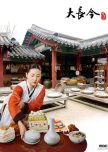
How much do we need to put this poor girl through?
I stumbled upon this Sageuk in my constant search for something new, and found out that not only was this drama rated really high, but was also historically important for South Korea. Internationally-speaking, it was the very first historical K-Drama to really gain notoriety outside of SK's borders, and one of first one to give an accurate perspective of what life was really like for women under Joseon (a lot of Sageuks, especially nowadays, sugarcoat the Neo-Confucian ethics that dominated the region, sometimes very embarassingly). Knowing all of this, I was quite excited to watch a show about Joseon's first female Royal Physician: Jang-geum.The series actually started out really strong, showing the inner-working of the palace kitchen and the relationships between the women working there and the importance of this department in the whole grand scheme of the Joseon Bureaucracy. More than for "story", I wanted to watch this series to see how an early 2000s-era production of a Sageuk would translate today. Honestly, it looks great! Of course, it doesn't have a glossy sheen that all new Sagueks have, but I feel that if it were remastered into 720p/1080p, it would definitely work out even in today's production.
However, despite me being quite impressed with the production, acting, music, and script-writing initially...something started to make me dislike the series more and more as it went on. The show was no longer about a woman's struggle to realize her passion through a completely male-dominated Neo-Confucian world. It slowly became...almost a torture p*rn of some sort? I don't mean to crude, but really, how much do the scriptwriters want this poor woman to go through? I don't want to spoil anything for anyone who wants to watch this, but let it be known: you will have absolutely no breathing room. Every second, every scene, every sentence, is somehow connected to some woman or some man conspiring against Jang-geum in the most horrible way. Jang-guem suffers through so much in this show, and with absolutely no reward. It's an unforgiving show that will keep you at your seat, constantly trying to keep up with all the schemes people throw at this woman. I understand, what Jang-geum did was legendary and immensely (damn-near impossibly) difficult in the world that she lived in; however, I feel they could have portrayed her troubles in a different manner. The issue ultimately stems from this: were the script-writers trying to be *brutally* honest about Neo-Confucian ethics and hierarchy, or was this more for "show". My later sentences will show why I feel confused about this. Even if you wanted to be brutally honest, I think there could have been a much better way to portray it, with making the runtime of the show less tedious. The only thing that made this tolerable for me was the loyal group of friends Jang-geum kept with her throughout the episodes. Lemme tell you, if you had these kinds of friends in real life, they are 100% worth-keeping for their undying loyalty. Unfortunately, even Jang-geum's friends can't escape the curse of having everything bad happen to them as well.
In a nutshell: from the moment Jang-geum is born to the end of the show, everyone is conspiring against her. And this even applies to her inner-circle of friends as well. Not to mention, is it me, or is nearly every stranger Jang-geum interacts with automatically hostile to her in some way?
Again, I want to stress, I know how difficult things were for women back then, but I feel that this show goes a bit too far, or, at the very least, doesn't give you nearly enough time to swallow what's going on. It's a constant barrage of schemes, pain, and suffering towards Jang-geum. If you think I'm exaggerating, please watch the show yourself.
Also, this show has afforded waaaay too many 'conveniences' for my liking. Everyone seems to be at the wrong place at the wrong time (or the right place at the right time), everything that could go wrong does go wrong, the character constantly runs away only to end up right back where they started, Jang-geum is always right (and never wrong) and the villains are always wrong (almost a cut/paste Mary Sue character), objects that are supposed to be 'hidden' are always found by the villains, the super drawn-out 'forbidden love' in which the male is unable to help the female in much capacity, justice is somehow swift and harsh for our protagonists but the villains are always afforded some leniency, there's always some villain that happens listen on to a 'secret' conversation our protagonist is having with someone else, etc etc. It's tiring. How many tropes can you throw in one drama? I know it's hard to avoid using them, so if you're going to use them, use them sparingly and wisely.
If that wasn't enough, the ending is a complete waste of time. Believe me, once you go through all the episodes of this drama, only to see what this drama's ending has to offer, you will feel like you wasted your time.
I justify my 5/10 rating for this reason. It's a historically important Sageuk with incredibly competent production, with great acting and a sweeping soundtrack. I appreciate the history this drama tried to portray, and I have a lot of respect for the actors/actresses and scriptwriters as well who took on this massive undertaking. A story like this isn't easy to write, especially with a genre that is typically romance-driven or fantasy-driven. The story starts off good, but starts veering off into lunacy somewhere near the middle. The ending, is a complete bomb. There are too many 'conveniences' and cliches for me, and the main character gets abused to a sickening degree. It's a great show and a bad show at the same time.
Proceed with caution.
Was this review helpful to you?
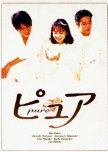
What do I think? It's in the title!
I watched this show over a year ago, so some of the details may be a bit hazy, but I remember the gist of it."Pure" is a simple yet accurate way to describe this show. "Pure" centers around a young girl (Orihara Yuka) with a mental disability who is used to the 24/7 protection of her family from the outside world; however, her skill as an artist blossoms a whole new reality for her in a relatively short amount of time. Yuka's art is respected, but there are many who want to take advantage of her for their own personal gain. However, other than her family, there is one person who looks out for her and starts to genuinely fall in love with her: Sawatari Toru. Sawatari is an editor for a sleazy "National Inquirer"-type magazine that operates in the area. Sawatari doesn't actually like working there; the job is simply a stepping stone for Sawatari to get revenge on a politician who had killed his father. However, along the way, he accidentally bumps into Yuka and slowly but surely falls in love with her.
This show is the creme de la creme of the 90s "Golden Age" of Japanese dramas. It stresses the importance of family, sticking together, looking out for those who truly love and appreciate you, understanding that love is more about what's on the inside than the outside, setting boundaries, and much more.
The story is great for a short-series and the acting is spectacular. The music can sometimes be a bit cheesy, but it's not that bad.
Highly highly recommend this drama. It's a very touchy show that made me cry multiple times.
Was this review helpful to you?
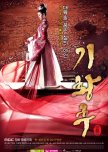
Not bad; just not great
Right off the bad, I want to say this: the first 20-25 episodes or so of this drama are nothing short of spectacular. The story is absolutely riveting and takes no time to draw you in. From the first second, you're immediately plopped into the mesmerizing and eventful world of Seungnyang, a.k.a., Empress Ki. The very beginning of the drama starts out with an immense orchestral piece that shows Empress Ki marrying the Yuan Emperor and Wang Yu, the King of Goryeo (Korea), looking off into the distance with immense disappointment and melancholy. That scene alone is one of the most powerful scenes I have ever witnessed in a drama; what a way to start! The following episodes then revert back several decades to how it all started (how Seungnyang was born, how she became the way she is, how Wang Yu took the Goryeo throne, how the Yuan Emperor fell in love with Seungnyang, etc etc). It's all done tastefully and with excellent pacing.Then, things start to hit the sh*tter.
I don't know what happened, but somewhere around episodes 20-25, it felt like the writers just gave up on the story. I get it, this is first and foremost a drama and it's not looking for anything "realistic" or "historically accurate"; however, the absurd meter goes beyond the charts in the latter half of this drama. There is just so much stupid stuff that happens in the story that is becomes a parody of itself; beyond comical! It's really sad because all the actors in this drama are just doing an incredible job with their roles, and there was a lot of heavy buildup to the climax, but it all falls apart as the story progresses beyond episode 25. I don't want to spoil anything for anyone, but just know that some of "schemes" that occur in the latter half are just ridiculous and reach peak melodrama. It's like the writers couldn't decide whether it wanted to be a palace harem drama, a "Mary Sue"-type story, or a "forbidden love" situation. Oh what the hell, just lump them all in together and somehow squeeze it into 50 episodes or so.
The music is godly; easily 10/10. I'm not a fan of K-Pop music, but the melodies and singers are really just out of this world. Don't even get me started on the orchestral pieces; some of the greatest music to come out of a K-Drama, and I really mean it.
Overall, I give it a 6.0/10. It's a drama that you can tell a lot of work was put into, and there's just so much effort that was put from everyone (except the writers lol) that I must rate it above average. However, because of the absurdity of the show in the latter half thanks to the writers simply giving up on making any logical sense, I cannot recommend it anything higher than "above average".
I recommend you watch the drama, but just know what you will be getting yourself into. The first 20-25 episodes alone are worth watching, maybe skip ahead / fast-forward after that.
Was this review helpful to you?
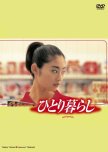
This review may contain spoilers
Riveting Drama....Until the End
There's no denying the 90s were a golden period of Japanese Dramas. Many of the often depict 'coming of age' themes or maturation of individuals after going through life-changing events. For episodes 1-8, this drama was really great. The way Miho slowly crawls out of her "shell" and starts to see the real world on her own is fascinating to watch. I really like how they make Miho "mature" throughout the episodes, but not too much. Miho just recently moved out of her parent's home, so I like that the drama didn't take the liberty of making her change too much too fast. You know that by the time the drama is over, she still has a lot to learn.However, episodes 9 and 10 are where everything falls apart for me. Let's talk about the elephant in the room...Kyoko. Kyoko is honestly one of the most disturbing characters I've witnessed in my history of watching J-Dramas (and trust me, I've seen many). Kyoko is Miho's best friend, and boy does she have a troubled life. Kyoko is married and is currently having an affair with another man, and she was supposed to have a kid, but got an abortion. Kyoko has an inability to maintain relationships with the people she has affairs with, and it may be for a good reason. As the episodes unfold, it's clear that Kyoko is bisexual, possibly even lesbian. This may hint why she has an inability to maintain relationships with her affairs, because she may have sexual feelings for....Miho?
Kyoko comes off as immensely needy, reckless, uncaring, selfish, and psychopathic. Kyoko has no problem causing pain and suffering to others if it means attaining her goals. If I had a friend like Kyoko who did things to me like what she did, I would immediately cut them off from my life, even if it meant I was completely alone. Some have speculated that Miho also has 'sexual feelings' for Kyoko as well, but as a bisexual man myself, if I had a man who had treated me the way Kyoko treats Miho, I would immediately cut off the relationship. It gets REALLY creepy at the end.
Despite this, however, Miho acts like nothing happened (I mean, she does show anger towards Kyoko, but by episode 10, I have no idea what Miho is doing/wants anymore). The ending was alright for what it was, but it was jarring how the quality of the drama dropped in just 2 episodes. Clearly, someone was either rushed to finish the script, or someone had a major blunder.
I would have given this drama 8.5 / 10 stars if it wasn't for the last 2 episodes, since the acting is wonderful, the music is really comforting, and the overall story arch is something I can personally relate with (I know the 'loneliness' I felt when I moved out for the first time on my own). Also, I felt Shintani was a bit of a throwaway character; for some odd reason, I didn't really care for him too much.
Overall, too many liberties are taken for the ending, very much to a comical degree, dropping my rating to a 7.0/10. Very good drama, but not 'great'.
Was this review helpful to you?
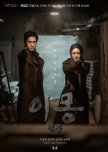
I'm....Very Disappointed
Let me first state that the era from 1860-1945 is probably my favorite time period to read, watch dramas, documentaries, movies, and more about. The era of the 2nd industrial revolution, countries around the world being forced to open up their economies, seeing old decaying dynasties/monarchies bite the dust, seeing harrowing stories about struggling peoples trying to make ends with the little resources they have, governments forced to reconcile modernity with tradition, the world witnessing some of humanity's greatest achievements along with some of humanity's greatest atrocities, and much more, make this time period in history arguably the most captivating of all. Of all areas around the world, I'm most interested in East Asia. Any drama/movie/book dealing with China/Japan/Korea/Mongolia during this era is something I'll eat up right away. After watching Mr. Sunshine, Nokdu Flower, and Chicago Typewriter, I was ready to dig in to this drama. I've watched tons and tons of C-Dramas/K-Dramas/J-Dramas, and just by the trailers alone I saw for this show, I was super excited (which is saying something). The music sounded great, the actors/actresses looked convincing, the atmosphere and tone created was sublime, and the story looked like it was going to be enthralling. This was going to be a show on par with Mr. Sunshine and Chicago Typewriter, maybe even surpass both of those.However...I was left bitterly disappointed.
The first few episodes start off...kinda strong. Usually dramas like these take a bit to get into, however, so see a drama build up so well in the beginning was surprising for me. However, it quickly devolved into insanity.
Incredibly predictable plot with characters who make very questionable decisions. Nothing feels very believable here, and the tropes that plague the drama from the very beginning were too much for me to bear to continue watching. If you know anything about this period in East Asian history, you'll realize that a lot of what's going on simply doesn't make any sense. Japanese soldiers speaking Korean? A Japanese soldier raising a Korean child, allowing her to speak her native language and respecting her Korean traditions? Travelling to Mongolia so willy-nilly knowing that the Japanese will be on your case every step of the way, making incredibly careless and stupid decisions? A Japanese lawyer who *instantly* falls in love with a Korean doctor and is making it super obvious that he's trying to help a Korean woman do things that are antithetical to Japanese imperialist policies and faces little to no repercussions for it (at least in the beginning, I don't know about the rest of the drama, didn't bother finishing it)? I mean, the Japanese lawyer in the show is pretty high up in the chain of command in terms of his importance, and he's willing to sacrifice his job for a woman who he just met and doesn't know all that much about? The other thing that bothered me was that *literally every single time* there is a "secret meeting", somehow, there's a bad guy that happens to listen in to the conversation and blow the whole cover. I know this is a trope that's inevitable (I'm looking at you palace harem dramas), but it's overused here just as much as it's used there.
All-in-all, I know there is a good plot somewhere, but it's lost in the mud with all the sins the writers of this show have committed. The complete incompetence of the group of "revolutionaries" is genuinely astounding. Some of the things that they do in the episodes I've watched, I seriously wonder what's going on through their heads. Do they not understand what enemy they're dealing with?
Also, some of the acting is very...strange. The guy who's in charge of the Korean clique that the main characters are trying to get support from, when he does his "evil laugh" at some point in the beginning of the drama, I immediately cringe. It's sooooo cringe lol; terrible acting. He tries to come off "badass", but fails miserably. The acting from the other cast members are ok; not fantastic, but certainly not bad. Good enough for me.
The saving grace, however, is OST. I bought the OST and am listening to it, wishing the show was just as good. Seriously, this OST is just gorgeous. Do yourself a favor; skip this show, and just buy the OST. It can be described in one word: glamorous.
Watch Mr. Sunshine, Nokdu Flower, or Chicago Typewriter instead of Different Dreams; all three are far better in every way. Different Dreams feels like an American drama but with Korean characters and a Korean story stickered on.
P.S. - Why does Mongolia have the "Mexico Filter"? Mongolia isn't "orange". I see Korean cinema has been taking notes from Hollywood.
Was this review helpful to you?




